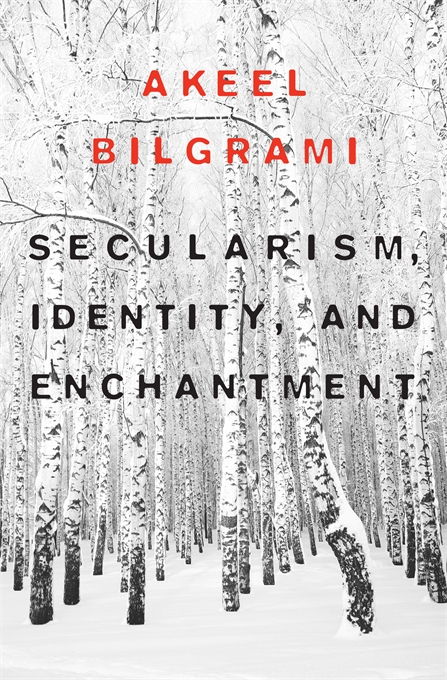The Committee on Global Thought congratulates Akeel Bilgrami on the release of his new book, Secularism, Identity, and Enchantment, published by Harvard University Press. Click here for more details.
About Secularism, Identity, and Enchantment
 Bringing clarity to a subject clouded by polemic, Secularism, Identity, and Enchantment is a rigorous exploration of how secularism and identity emerged as concepts in different parts of the modern world. At a time when secularist and religious worldviews appear irreconcilable, Bilgrami strikes out on a path distinctly his own, criticizing secularist proponents and detractors, liberal universalists and multicultural relativists alike.
Bringing clarity to a subject clouded by polemic, Secularism, Identity, and Enchantment is a rigorous exploration of how secularism and identity emerged as concepts in different parts of the modern world. At a time when secularist and religious worldviews appear irreconcilable, Bilgrami strikes out on a path distinctly his own, criticizing secularist proponents and detractors, liberal universalists and multicultural relativists alike.
Those who ground secularism in arguments that aspire to universal reach, Bilgrami argues, fundamentally misunderstand the nature of politics. To those, by contrast, who regard secularism as a mere outgrowth of colonial domination, he offers the possibility of a more conceptually vernacular ground for political secularism. Focusing on the response to Salman Rushdie’s Satanic Verses, Bilgrami asks why Islamic identity has so often been a mobilizing force against liberalism, and he answers the question with diagnostic sympathy, providing a philosophical framework within which the Islamic tradition might overcome the resentments prompted by its colonized past and present.
Turning to Gandhi’s political and religious thought, Bilgrami ponders whether the increasing appeal of religion in many parts of the world reflects a growing disillusionment not with science but with an outlook of detachment around the rise of modern science and capitalism. He elaborates a notion of enchantment along metaphysical, ethical, and political lines with a view to finding in secular modernity a locus of meaning and value, while addressing squarely the anxiety that all such notions hark back nostalgically to a time that has past.
Praise for Secularism, Identity, and Enchantment
“It is a rewarding experience to read these thoughtful and penetrating essays, with their wide-ranging, provocative, and challenging ideas and insights, deeply informed and carefully reasoned, and reaching to issues of fundamental concern in the contemporary world.”—Noam Chomsky, Massachusetts Institute of Technology
“Carrying on the critical spirit of Edward Said, Bilgrami presents a profoundly original emancipatory genealogy of secularism-and-religion, identity, and enchantment, and, in so doing, of the hidden historical and conceptual connections between them. It is emancipatory in bringing to light within them the possibility of a distinct kind of radical politics today—one that draws on seventeenth-century English radicalism, German romanticism, Marx, and especially Gandhi, among others. In the conclusion he shows the striking affinities of this remarkable achievement to Said’s critical humanism. This is a must-read for anyone who wishes to think differently about these central problems of the present and respond constructively to them.”—James Tully, University of Victoria
“Bilgrami became known as one of the leading voices on the problem of secularism long before the topic became fashionable in the United States, and has continued to articulate a thorough and rigorous approach to tough questions that are now very widely debated. One has a strong sense of the continuity of position—and more impressively, the continuity of Bilgrami’s recognizable voice, with its combination of seriousness about thinking, the humanity of wide sympathies, and a certain argumentative ferocity—over a period of some twenty years. This book has been eagerly anticipated by a wide interdisciplinary audience as essays from a leading thinker in the field; it will appeal broadly, and its lasting impact is assured.”—Michael Warner, Yale University
Available at Harvard University Press.